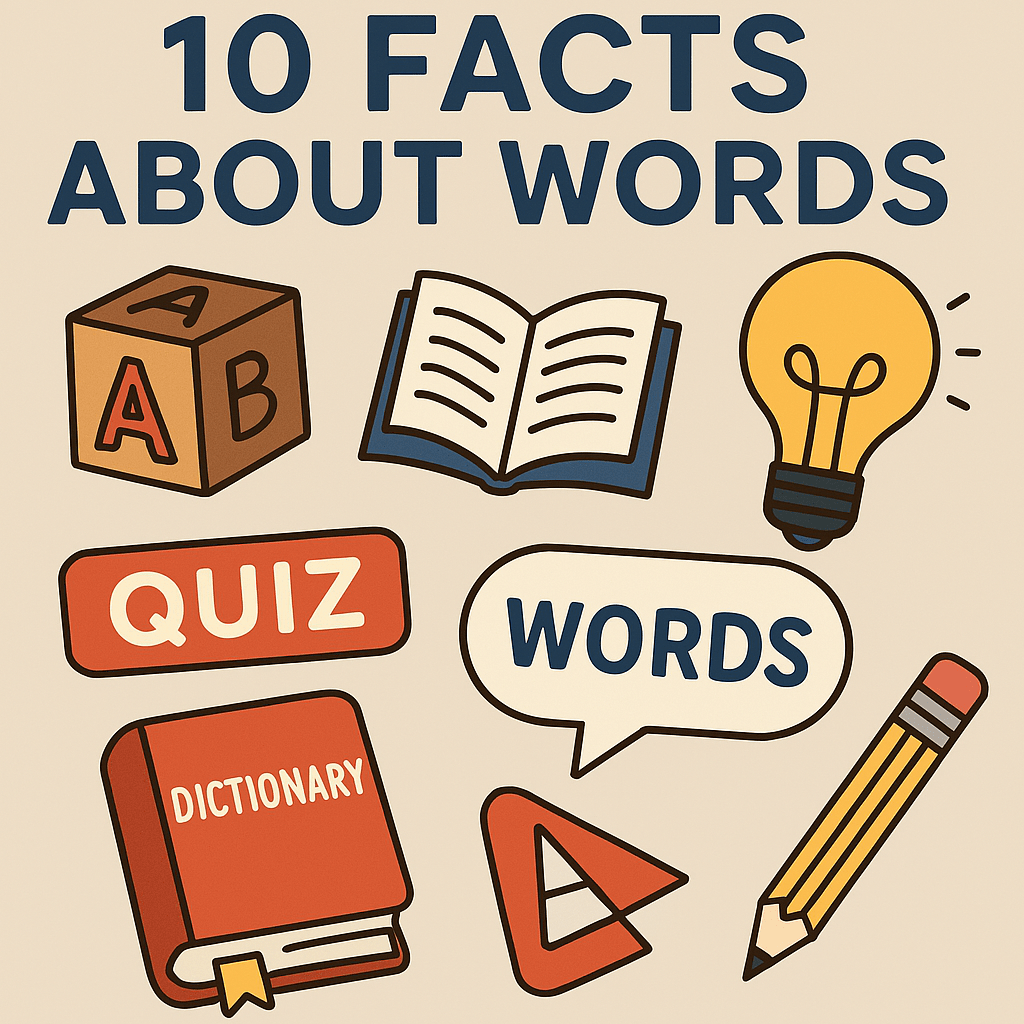1. A “ghost word” is a dictionary typo that became a word.
For example, “dord” appeared in the 1934 Merriam-Webster dictionary because of a printing error and stuck around for years.
2. A “spoonerism” is when sounds in words get swapped.
Like saying “well-boiled icicle” instead of “well-oiled bicycle.”
3. A “contronym” is a word with opposite meanings.
“Sanction” can mean both to approve and to punish. Same word, two extremes.
4. A “palindrome” is a word or phrase that reads the same backward and forward.
Examples include “madam,” “racecar,” and “taco cat.”
5. “Noon” didn’t always mean noon.
In Old English, “noon” meant 3 p.m. Over time, the meaning shifted to midday.
6. “Oxymoron” is itself an oxymoron.
It comes from Greek roots “oxy” (sharp) and “moron” (foolish), making it literally a “sharp-foolish” phrase.
7. A “pangram” is a sentence that uses every letter of the alphabet.
The best-known is “The quick brown fox jumps over the lazy dog.”
8. A “mondegreen” is a misheard lyric or phrase.
Like thinking Jimi Hendrix sang “’Scuse me while I kiss this guy” instead of “kiss the sky.”
9. Silent letters used to be spoken.
The “k” and “gh” in “knight” were once pronounced in Old English.
10. A “portmanteau” is a word formed by blending two words.
“Brunch” (breakfast + lunch) and “smog” (smoke + fog) are classic examples.
11. A “malapropism” is the comic misuse of a word.
Like saying “illiterate him from your memory” instead of “obliterate him.”
12. “Sesquipedalian” literally means “a lover of long words.”
And, appropriately, it is a very long word itself.
13. A “backronym” is an acronym invented after the fact.
For example, some people claim “POSH” stands for “Port Out, Starboard Home,” but that story was made up later.
14. Redundant acronyms double up by mistake.
Saying “ATM machine” actually means “Automated Teller Machine machine.”
15. An “acronym” is read as a word, while an “initialism” is spelled out.
NATO is an acronym. FBI is an initialism.
16. Etymology is word origins, entomology is insects.
Two letters apart, two completely different fields.
17. A “capitonym” changes meaning when capitalized.
“March” the month vs. “march” to walk. Same spelling, new meaning.
18. Homophones are words that sound alike but mean different things.
Like “flour” and “flower.”
19. An “eggcorn” is a misheard expression that still sort of makes sense.
Saying “for all intensive purposes” instead of “for all intents and purposes” is a classic eggcorn.
20. A “pseudonym” is a fake name used by a writer.
Mark Twain was really Samuel Clemens.
Put your word power to the test — play a round of Wordshake!
P.S. Think you can find words like “contronym” or “sesquipedalian” faster than anyone else? Try the brand-new Wordshake Live and compete in real time. Happy word hunting!











